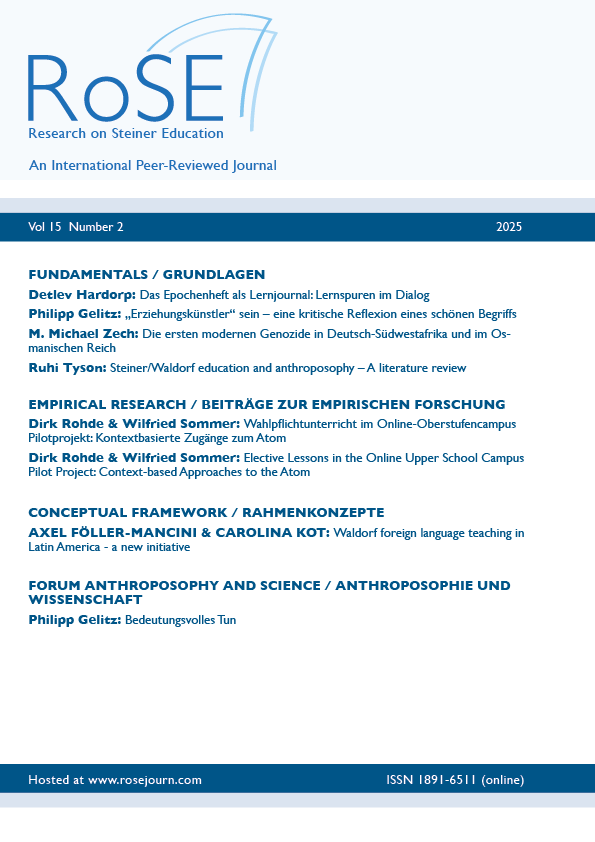Das Epochenheft als Lernjournal: Lernspuren im Dialog
Abstract
The main lesson book in Waldorf Education and the learning journal of Dialogic Learning arise from a similar pedagogical impulse. Both approaches build on the individual unfolding of the learner‘s will and invert conventional pedagogical practice. This inversion can be summarised as a path from active engagement (conclusion) to searching for meaning (judgement) to conceptual resolution (concept), or from I to You to We. Both approaches seek to protect the genesis of a language of understanding from the language of the understood and endeavour to give students more agency.
Students are enticed to explore for themselves and express their thoughts and feelings on a given task productively in writing in the school lesson, which the teacher then collects, in order to base her or his teaching on what comes back from her or his students - and also in order to give quick ipsative feedback (i.e. feedback not based on the same marking schedule for all, but based on each students individual progress and capabilities).
In this way, knowledge is mainly generated individually by each student, as well as through class interactions, giving students a deeper rooted ownership of their knowledge. The teacher‘s task is to initiate and stimulate the process, particularly at the beginning of a main lesson, and to ensure the convergence of nascent knowledge within the class, in particular towards the end. This process automatically creates main lesson books as learning journals.


